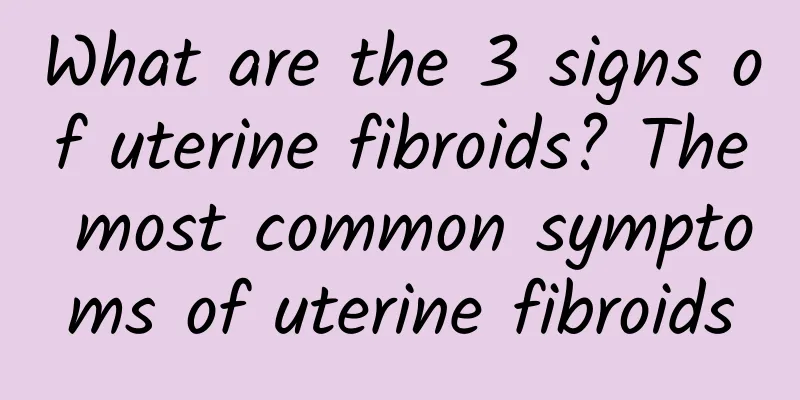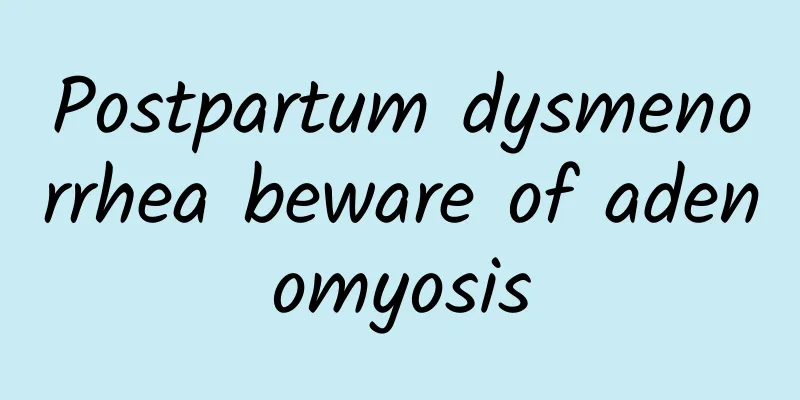What are the 3 signs of uterine fibroids? The most common symptoms of uterine fibroids

|
What are the 3 signs of uterine fibroids? The most common symptoms of uterine fibroids Uterine fibroids are one of the common diseases of the female reproductive system. Many women may suffer from uterine fibroids during their childbearing years. Knowing the three typical signs and most common symptoms of uterine fibroids is very important for early detection, diagnosis and treatment of the disease. Paragraph 1: Abnormal menstrual bleeding is a common sign of uterine fibroids Uterine fibroids are masses formed by the proliferation of smooth muscle cells in the endometrium. One of the most common symptoms is abnormal menstrual bleeding. Women experience increased bleeding during their periods, prolonged periods, and even intermittent bleeding. This is because uterine fibroids affect the blood vessels in the uterine wall, causing the blood to not coagulate and discharge normally when flowing through the uterus, thus causing abnormal menstrual bleeding. Paragraph 2: Pelvic pain is one of the typical signs of uterine fibroids Patients with uterine fibroids often experience symptoms of pelvic pain. This pain can be a constant, dull ache or an acute, paroxysmal pain. Pain can occur when uterine fibroids grow and press on nearby tissues and organs. Uterine fibroids can also cause abdominal pain, especially during sex and urination. Paragraph 3: Frequent urination and difficulty urinating are also common symptoms of uterine fibroids Another common symptom is frequent and difficult urination. The location of the fibroids may cause pressure on the bladder, resulting in frequent and urgent urination. You may need to go to the bathroom frequently and have difficulty urinating even when you really want to. This is especially common if the fibroids are large or directly press on the bladder. Early detection of signs and symptoms of uterine fibroids is crucial The three typical signs of uterine fibroids include abnormal menstrual bleeding, pelvic pain, and frequent urination and difficulty urinating. Early detection and identification of these signs are very important for early treatment and prevention of possible complications. If you have the above symptoms, it is recommended to see a doctor for examination in time. Treatments for uterine fibroids include medication, surgical resection, and other new non-invasive treatments. Doctors will choose and recommend them according to the patient's specific situation. Remember, it is the responsibility of each of us to pay attention to and protect women's health. |
<<: What is uterine fibroid bleeding? Symptoms of uterine fibroid bleeding
Recommend
No flour, even more delicious! Banana Yogurt Mug Cake in 1 Minute
Mug cake, which has been popular in Europe and th...
How to cure infection after abortion
How to cure infection after abortion? Although ab...
What to do with irregular menstruation? 3 common dietary conditioning methods for irregular menstruation
Irregular menstruation is a common disease among ...
The key to autologous fat breast augmentation is to create space
The key to breast augmentation with autologous fa...
What is the normal progesterone level at 3 weeks of pregnancy?
The normal value of progesterone in 3 weeks of pr...
Under what circumstances should uterine fibroids be removed? Under what circumstances should uterine fibroids be removed?
Under what circumstances should uterine fibroids ...
Cervical erosion is very harmful to women
Cervical erosion brings a lot of trouble to women...
Multiple uterine cysts after miscarriage
Multiple uterine cysts after miscarriage may be r...
What is the recurrence of uterine fibroids? What should I do if uterine fibroids recur?
Uterine fibroids are a common reproductive system...
Banana is not a fruit, "this ingredient" helps you lose weight! Dr. Liu Boen: Bananas contain 5 benefits of resistant starch
Bananas are happy food. They can not only relieve...
How should women use medication for cervical erosion? A guide to drug therapy for cervical erosion in women
Several methods of treating cervical erosion 1. D...
How can women with irregular menstruation regulate their menstruation? Five criteria to judge whether menstruation is normal
Many female friends do not have a correct underst...
How big is the uterine fibroid that requires surgical removal?
There is no absolute limit to how big a uterine f...
Dietary care after cervicitis surgery
Cervicitis must choose the correct treatment meth...
How to treat pelvic inflammatory disease?
How to treat gynecological pelvic inflammatory di...









